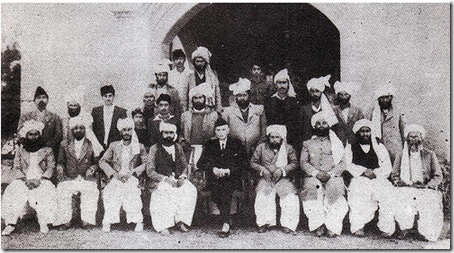 |
| Click on the image to enlarge |
Quaid-e-Azam M.A. Jinnah and Balochistan in pictures
Quaid-e-Azam Residency - Ziarat
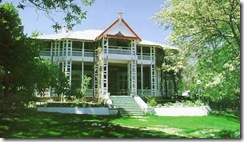 | 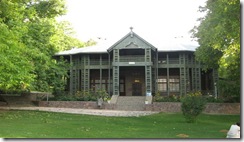 |
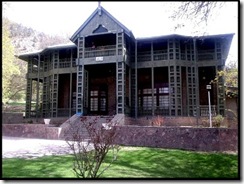 | 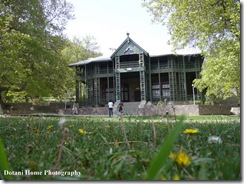 |
 | 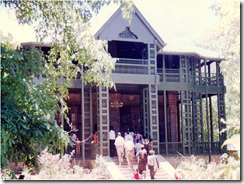 |
 | 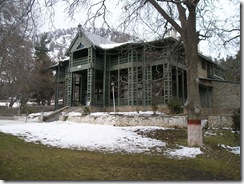 |
 | 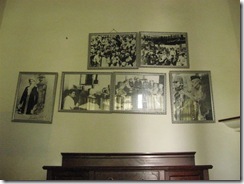 |
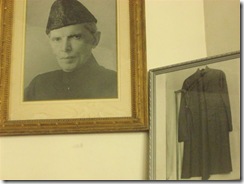 | 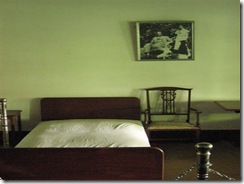 |
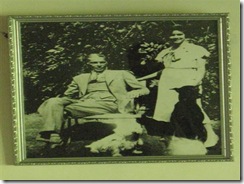 |  |
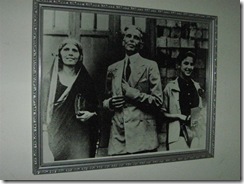 |  |
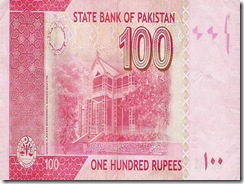 | 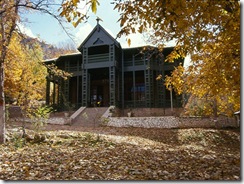 |
>> Click here for Virtual tour of Quaid-e-Azam Mohammad Ali Jinnah Residence in Ziarat
Quaid-e-Azam and Balochistan
by Dr. Munir Ahmed Baloch
The huge land mass of Balochistan rising steadily from the coastal plains of the sea of Arabia to the eerie heights of Quetta, and then descending in an undulating manner up to the fringe of the North-West Frontier Province, covers a little over 125,000 sq. miles constituting almost 43% of the total area of Pakistan. Another 45,000 sq. miles of Balochistan territory lie in the neighbouring state of Iran and smaller region in southern Afghanistan.1
With the advent of British colonial rule over India, Balochistan came under colonial influence in 1876 and was portioned among Iranians and the British. The Eastern part of Balochistan was further divided into British Balochistan, Balochistan States, while a part of Seistan was given to Afghanistan. The areas of Derajat and Jacobabad (Khan Garh) was demarcated and given to British India.
British imperialists used Balochistan as a military base to check the extension policy of Tsarist Russia against India.2 Balochistan was denied almost all forms of reforms which over the years, since the turn of the century, were introduced in other parts of India.
Despite being a separate administrative unit, Balochistan was not include in the list of provinces because it did not enjoy the status of a province. It was an administrative unit headed by the Agent to Governor General. This implied that the reforms introduced in the recognised provinces of British India were not introduced in Balochistan.3
The Quaid-i-Azam was aware of the vexing problems of Balochistan. He had demanded reforms in Balochistan in his famous “Fourteen Points”. He pleaded that Balochistan should be brought in the line with other provinces of India.
About the late twenties in Balochistan there were curbs on expression of open political opinions and there was no press. In 1927, Abdul Aziz Khurd and Nasim Talwi started a newspaper called “Balochistan” in Delhi. Yousuf Ali Khan Magsi, Sardar of the Magsi tribe, wrote an article for a Lahore newspaper in 1929 which he entitled “Fariad-e-Balochistan” or, “The Wail from Balochistan”. In May, 1939 he produced a pamphlet called “Balochistan ki Awaz”, or “The Voice of Balochistan”, specially for the British Parliament in London. In February, 1934, Yousuf Ali visited England in pursuit of his political objectives and both going and coming he visited Quaid-i-Azam at Bombay.
Muslim League was another political organization to sponsor the cause of Balochistan for the creation of a separate province for Balochistan.
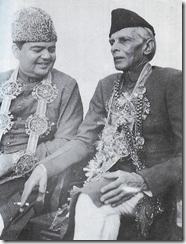 The foundations of the Muslim League in Baluchistan were laid by a young known lawyer of Balochistan by the name of Qazi Isa. It was in 1938 that Isa paid a visit to Quaid-i-Azam at Bombay on his return from his studies in England and was so impressed that he accepted the invitation of the Quaid-i-Azam to form and organise the Muslim League in Balochistan.
The foundations of the Muslim League in Baluchistan were laid by a young known lawyer of Balochistan by the name of Qazi Isa. It was in 1938 that Isa paid a visit to Quaid-i-Azam at Bombay on his return from his studies in England and was so impressed that he accepted the invitation of the Quaid-i-Azam to form and organise the Muslim League in Balochistan.
Apart from the other activities and visits of Muslim League leaders, Quaid-i-Azam Mohammad Ali Jinnah himself visited Balochistan many times. In the middle of 1934, Quaid-i-Azam paid a visit to Balochistan and spent about two months there. In a public session of the League Conferences at Quetta, Qazi Isa made a dramatic and emotional gesture. Presenting the Quaid-i-Azam with a Sword, reportedly belonging to Ahmed Shah Abdali, he said:
Throughout history, the sword had been the constant companion of the Muslims. When the Muslims did not have an Amir, this sword was lying in safe custody. Now that you have taken over as the Amir of this nation, I hand over this historic sword to you. This has always been used in defence, in your safe hands also, it will be used only for this purpose.
 On this occasion, the Quaid-i-Azam paid a highly successful four days visits to Kalat on the personal invitation of Khan Mir Ahmed Yar Khan, the ruler of Kalat. In the meantime, Nawabzada Liaquat Ali Khan went on pressing in the Central Assembly to give constitutional reforms to Baluchistan and ultimately succeeded when his resolution was passed by the Assembly in March 1944.4 In the same year, when British were involved in the second World War, General R.C. Money submitted a memorandum, “Post-War Reconstruction Balochistan.”
On this occasion, the Quaid-i-Azam paid a highly successful four days visits to Kalat on the personal invitation of Khan Mir Ahmed Yar Khan, the ruler of Kalat. In the meantime, Nawabzada Liaquat Ali Khan went on pressing in the Central Assembly to give constitutional reforms to Baluchistan and ultimately succeeded when his resolution was passed by the Assembly in March 1944.4 In the same year, when British were involved in the second World War, General R.C. Money submitted a memorandum, “Post-War Reconstruction Balochistan.”
In the memorandum, it was suggested, that “Balochistan is the right place for a considerable imperial garrison after the war. It was added that after the transfer of power in British India, “Balochistan” is not part of British India.” The memorandum was appreciated by Amry, as shown by his reply to Money on 18 November 1944 and his letter to Wavell, dated 23 November 1944.5
The Allies won the World War II on 2 September 1945. Ultimately, on 24 March 1946, the Cabinet Mission comprising three Cabinet Ministers arrived at Delhi presented the Partition plan of India on 16 May 1946. After the announcement of Paritition plan the tempo of political activity and polarization was between contending parties and factions gained momentum. Balochistan was of vital importance to the future of Pakistan as a country and people and, Mr. Jinnah was keen to make Balochistan a part and parcel of Pakistan. Conversely, the people who were averse to the prospect of the Indian Muslims securing an independent homeland, Nehru and Mountbatten, for instance, created all types of difficulties for the Muslim League. The foremost issue was: Which of the two Constituent Assemblies will Balochistan join, that is, of India or Pakistan. Moreover, that would be the status of Balochistan states on the lapse of British paramountcy? Would the leased areas be restored to the Khan of Kalat? What will be the future of the Princely States, their rulers and, so also that of the Tribal Territories in Balochistan?
The draft Proposal as revised by Cabinet Committee upto 8 May said:
In British Balochistan, the members of the Shahi Jirga other than those members who are nominated as Sardars of Kalat State, and non-officials members of the Quetta Municipality, will meet to decide which of the three options in para 4 above they choose. The meeting will also elect a representative to attend the Constituent Assembly selected.
Nehru objected to the proposal. He said:
It leaves the future of the Province to one man chosen by a group of Sardars and nominated persons who obviously represent a vested semi-feudal element. Baluchistan has an importance as a strategic frontier of India and its future cannot be dealt with in this partial and casual manner.
He added: “The future of Balochistan raised many strategic problems and the way at present envisaged is a very casual way of dealing with an important frontier area. Finally, he suggested that this case be deferred until the picture in the rest of India got clearer. This was not agreed to by the Viceroy”.
Whereas the Quaid-i-Azam emphasized that a democratic machinery might be devised to ensure free and fair expression of the will of the people, Mr. Liaquat Ali Khan, on behalf of the Muslim League, proposed a plebiscite. Any genuine democratic vote would satisfy the Muslims. He and the Quaid were very confident of winning Balochistan by the democratic method. They did not create any fuss, like Nehru.
Lord Mountbatten differed with both Jinnah and Nehru. He thought that in Baluchistan Tribal System, democratic mehhods would not work, and the prevailing system could not be altered in a haste.
Later His Majesty’s Government (HMG) revised the proposal and the revised draft was studied, and different proposals from the Quaid-i-Azam, Pundit Nehru and Sir Geoffery Prior, the Agent to the Governor General (AGG) in Balochistan, were put up to the HMG. Finally it was decided to hold a referendum in Balochistan on June 30, 1947 in Shahi Jirga excluding the Sardars nominated by the Kalat state and non-officials members of Quetta Municipality. That would decide the future affiliations of Balochistan.
An extraordinary joint Session of the Shahi Jirga was held on 30 June 1947 to decide the crucial issue. To the dismay of the Congress, 54 members of the Shahi Jirga and Quetta Municipality, voted en-bloc to join the new Constituent Assembly to be set up in Pakistan.
The credit, in a large measure, for the convincing success of the Muslim League in these circumstances goes to Quaid-i-Azam Mohammad Ali Jinnah and the Balochistan Provincial Muslim League who successfully countered the Congress propaganda.6
Quaid-i-Azam Mohammad Ali Jinnah’s role, first as the Ambassador of Hindu-Muslim Unity, and subsequently as the leader of the Muslims, during 1936-1947, supported the cause of Balochistan and demanded accession from the Khan. Quaid-i-Azam Mohammad Ali Jinnah regarded Balochistan as his last resort in case of the failure of the demand for Pakistan.
With the lapse of the British paramountcy in 1947, the Khanate of Balochistan became an independent sovereign state. The Khan, Mir Ahmad Yar Khan, announced independence in a public speech on 15 August 1947. Soon after the promulgation of the constitution, elections were held at the Kalat state National Party won 39 out of a total 51 seats on Lower House. The rest of the seats went to independent candidates, who supported the cause of the National Party.
On 13, December, the Khan summoned the Lower House to discuss, the official language, the Sharia (Islamic Law), and relations between the Khanate of Balochistan and Pakistan, with special reference to accession.7
In September 1947, the Prime Minister of Kalat, Nawabzada M. Aslam, and the Foreign Minister, D.Y. Fell travelled to Karachi to discuss the leased areas, under the Kalat-Pakistan Agreement of August 1947. The meetings between the officials of the two states were not fruitful, due to policy of the Pakistani Government, which insisted on an unconditional accession of the Khanate to Pakistan. On 20 September 1947, Mr. Ikramullah, the Pakistan Foreign Secretary wrote a letter to Aslam, the Prime Minister of Khanate, urging the accession of the Khanate and, meanwhile, the president of the British Balochistan Muslim League, Qazi M. Isa, met the Khan and conveyed to him a message from Mohammad Ali Jinnah, the Governor-General of Pakistan, who extended an invitation for the Khan to come to Karachi to discuss future relations between the Khanate and Pakistan. Before the Khan’s visit to Karachi in October 1947, he discussed all possible courses of action with his Prime Minister and the Foreign Minister.
The Khan went to Karachi on Jinnah’s invitation with a draft treaty which he wanted to use as a basis for negotiations with the Government of Pakistan. The draft treaty proposed by the Khan was aimed at entering into a treaty relationship with Pakistan.8
On his arrival in Karachi, the Khan was not received by the Governor General nor by the Prime Minister, because Jinnah advised him to accede the Khanate to Pakistan and stated that he could propose no better course than accession.
Nevertheless, the Khan refused the demand of Mohammad Ali Jinnah and said, “As Balochistan is a land of numerous tribes, the people there must be consulted in the affairs prior to any decision”. The Khan promised Jinnah to reply after consulting the parliament of the Khanate. On December 12, 1947, a Session of the Darul-Awam was summoned by the Khan to discuss the matter of accession. The house after a debate adopted the following resolution unanimously on December 14, 1947.
Relations with Pakistan should be established as between two sovereign states through a treaty based upon friendship and not by accessions.
On January 4, 1948 the Darul-Umra also passed the same resolution. The Prime Minister Aslam visited Karachi with a copy of the proceedings of the parliament. He met Jinnah and discussed the matter of accession. On his return to Kalat in February, he brought a letter from Jinnah, dated 2 February 1948, addressed to the Khan. In this letter, once again Jinnah repeated the demand to join Pakistan.
On February 11, 1948, Quaid-i-Azam came to Sibi, situated in former British Balochistan, where a meeting was arranged between the Khan and Jinnah on the evening of the following day. On the 13, they had a second meeting at Dadar—the winter capital of the Khanate. Another meeting fixed for the 14th, had to be cancelled due to the sudden “illness” of the Khan.
Jinnah was disappointed by the behaviour of Khan and his parliament. On March 9, 1948, it was communicated to the Khan that “His Excellency had decided to cease to deal personally with Kalat state negotiations, to decide the future relations of Pakistan and Kalat.” Col. S.B. Shah was assigned to deal with the Khanate’s affairs, with the help of Aslam, who knew the internal conflicts and rivalries among the Khan and his chief, including feudatory chiefs, Mir Bai Khan, Gichki, Nawab of Mekran (Brother-in-Law of Khan) Ghulam Qadir, Jam of Las Bela, and Mir Habibullah Nusherwani, Nawab of Kharan. They met Jinnah on 17 March 1948, and informed his that “if Pakistan was not prepared to accept their offer of accession immediately they would be compelled to take other steps for their protection against the Khan of Kalat’s aggressive actions.”
After their meeting with Mohammad Ali Jinnah, Pakistan’s Cabinet met in an emergency session discuss the request the chief of Balochistan. The cabinet decided to accept the offer in order to put pressure on the Khan for accession. On 17 March Jinnah accepted the accession.
On 18 March, the Pakistan Minister of Foreign Affairs issued a press Statement, announcing that Pakistan had accepted the accession of Mehran, Kharan, and Lesbela, with the “accession” of these areas, Kalat lost its connection with Iran and Afghanistan and was left without any outlet to the sea.
After the accession of these states. The Joint Secretary for the Ministry of Foreign Affairs, Col. S.B. Shah approached the Baloch chiefs Wadera Bangulzai, Sardar Shahwani, Sardar Sanjarani, and offered them an autonomous status if they accede to Pakistan. Meanwhile Sardar Raisani offered his cooperation to Col. Shah.9
Nevertheless, the Khan saw two alternatives:
- To leave the palace and to take refuge in the mountains in order to fight.
- To accept the demand of accession.
The first alternative was opposed by Fell, and supported by nationalists. Khan agreed with proposed of Mr. Fell and saw the “wisdom” of declaring “accession”, without the approval of the parliament. On 28 March 1948, he informed the Government of Pakistan about his decision and the Khanate became a part of Pakistan.10
Notes and References
- Ahmad Abdullah, The Historical Background of Pakistan and its people. (Tanzem Publishers, Karachi, 1973), p. 72
- Stephanie Zinged, Pakistan in the 80’s: Ideology, Regionalism, Economy, Foreign Policy, (Vanguard, Lahroe 1985), pp. 336-37.
- Riaz Ahmad, “Quaid-i-Azam’s role in the London Round Table Conference 1930-31” Journal of Social Sciences and Humanities, Vol. I, No. 1 (Spring 1995), p. 20.
- A.B. Awan, Balochistan Historical and Political Processes, (New Century Publishers, London w. 1985), p. 20.
- Inayatullah Baloch, The Problem of Greater Balochistan, A Study of Baloch Nationalism (GMBH Stallgart, 1987), p. 174.
- Lt. Col. Syed Iqbal Ahmed, Balochistan: Its Strategic Importance (Royal Book Company, Karachi, 1992), pp. 109-112.
- Inayatullah Baloch, op. cit., pp. 175-76.
- Ibid., pp. 181-182.
- Ibid., pp. 183-187.
- Ibid. p. 189.
Audio Gallery
The Quaid-e-Azam Mohammad Ali Jinnah :-
Quaid-e-Azam meeting supporters at Quetta Railway Station in 1945
Constitutional position of Baluchistan (13th Jun 1948)
I am very pleased indeed to meet you all and have an opportunity of hearing your well-considered views about Baluchistan, and I have no doubt in your sincerity and loyalty to Pakistan. Your community is really very well organised and I am happy–and I always say so–that it is better equipped than any other community that I know of in the sub-continent. You, therefore, although small in number, can make very great contribution to the welfare and progress of Pakistan and particularly Baluchistan.
Now coming nearer to Baluchistan, I know that people have not yet fully realised what present constitution is–that is true of even of well-informed and well-educated people. The establishment of Pakistan was catastrophic change and thus came so suddenly that people have not yet fully realised what it is. I dwelt on this point in my Sibi speech and may I, therefore, request you to read that speech if you can get a copy of it. I cannot go into all the details but I think as citizens you ought to know what is the real position. Under the present constitution it is the Governor-General who is vested with all authority–executive, administrative and legislative–in Baluchistan. I am, therefore, directly responsible for all executive, administrative and legislative measures that may be necessary to be adopted in Baluchistan. Rightly or wrongly the burden is placed on my shoulders. Now, you must have realised that Baluchistan has been the most neglected part of this sub-continent all these years. In some respects it is criminal negligence on the part of those who were responsible for the welfare of Baluchistan. You have got a deep-rooted ancient century–old system which is in vogue here and your administration has been stagnant for nearly a century. This is a problem that I am faced with as the Executive Head of Baluchistan. Now you cannot change these things overnight together sincerely, honestly and selflessly and as servants of Baluchistan.
In the very nature of things it will take eighteen months to two years before the new constitution of Pakistan is ready but we cannot wait until that work is completed and, therefore, I have made a small beginning, as I have said but a very important one and if as they say small beginning, but a very important one, after consulting various interests in Baluchistan, namely, I have decided to set up Governor-General’s Advisory Council. I am at it and perhaps very shortly the constitution, rules and procedure of that body will be announced. That is of course, a small beginning as I have said but a very important one and if as they say small things lead to very great things and if you handle it and manage it properly I am sure it will result in great progress and development of Baluchistan. But as I have said, it will depend on how the people of Baluchistan will handle the Governor General’s Advisory Council. This Council will enable people to associate themselves, no doubt as an advisory body, with administration–its executive and legislative side. That is the first step that I have taken because I cannot wait until we have a final constitution of Pakistan ready.
As regards your points regarding shortage of water supply and communications they are already under examination and with the help of our people and with their co-operation and advice we may be able to make some headway in both these matters.
As regards potentialities of Baluchistan you are right. I have a great deal of information about it. That question is
under our examination and I think there is a great future for Baluchistan’s development of its mineral wealth, agricultural resources, water supply, communication etc.
Finally, Gentlemen, I am sure, though small in number you may be in Baluchistan and in Pakistan as a whole, you will not lag behind in making your full contribution as true selfless Pakistanis. Although you have not struck any note of your needs and requirements as a community but you know that it is the policy of my Government and myself that every member of every community irrespective of caste, colour, creed or race shall be fully protected with regard to his life, property and honour and that there should-be peace in Pakistan and law and order should be maintained at-any cost. I reiterate that you, like any other minorities, will be treated as equal citizens with all your rights and obligations so long as you are loyal to Pakistan. I am glad and it is very refreshing that you have not gone on with the same old rut and the hackneyed phrases which are echoed in various quarters about the grievances and requests of minorities, but I must tell you that these assurances have been given and they are going to be implemented. Minority communities must not by mere words but by actions show this that they are truly loyal and they must make majority community feel that they are true citizens of Pakistan. Then you will help me and you will facilitate my task in carrying out the policy which we have laid down. You know you must dispel suspicion and distrust. It is now up to minorities to show by actions and deeds that they are true Pakistanis and dispel suspicion and distrust that has been created by deplorable and disgraceful events that have taken place.
In the end, I thank you and I am very pleased to meet you all. Let us put our heads together and work together and make Pakistan what it really and truly deserves to be.
Nations are born in the hearts of poets!!!
The poetry of Allama Iqbal was a breath of fresh air throughout Pakistan Movement... ...This is the historical and extremely memorable pic o...

-
In 1913 the Quaid-i-Azam joined the All India Muslim League without abandoning the membership of the Congress of which he had been an active...
-
Quaid-e-Azam addressing a group of students 1. My young friends, I look forward to you as the real makers of Pakistan, do not be exploit...






